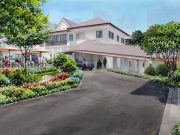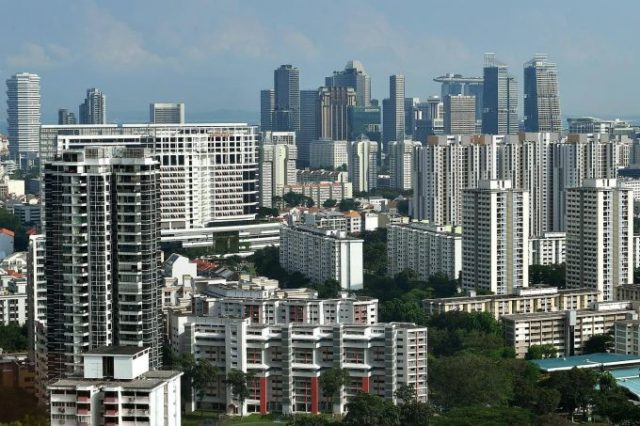[SINGAPORE] Singapore property stocks are set for knee-jerk declines Friday after the government unexpectedly tightened property curbs to cool a market the central bank described as euphoric.
The announcement late Thursday of higher stamp duty rates and tougher loan-to-value limits for buyers ran counter to the market sentiment earlier in the day. Investors had pushed shares of property developers’ higher, with the index tracking these stocks rising the most in two weeks despite a warning from the central bank chief Wednesday that there was “a euphoria” in the housing market.
“Singapore property stocks may be negatively impacted” Friday by the sudden move, said Joel Ng, an analyst at KGI Securities (Singapore) Pte. “It’s definitely a signal by the government that they are serious about managing the property market.”
Property developers that have been aggressive buyers of government land sales or collective sales of existing apartment buildings may be hit, Mr Ng said. These include City Developments Ltd., Oxley Holdings Ltd., SingHaiyi Group Ltd., UOL Group Ltd., he said. Keppel Land and Wing Tai Holdings Ltd. are also among developers that have added significantly to their Singapore residential landbank, according to KGI.
Shares of Hong Kong-listed Logan Property Holdings Co. also bear watching, as it has almost S$2.1 billion in gross development value in Singapore with two development sites, KGI said.
“This additional round of cooling measure is likely to dampen property buyers’ interest in a market that is already facing plenty of supply in 2018-2019,” said Margaret Yang, an analyst at CMC Markets Singapore Pte. “Property developers who invested heavily in recent ‘en-bloc’ sales are now facing more pressure in timeline and cash flow.”
An index tracking private residential prices jumped 3.4 per cent in the three months ended June 30, according to a flash estimate from the Urban Redevelopment Authority this week. That builds on a 3.9 per cent gain in the first quarter, which was the biggest since the second quarter of 2010.
Aggressive Bids
The rebound in home prices has prompted aggressive land bids from developers. The government in February raised taxes on home purchases exceeding S$1 million as collective apartment sales reached levels the central bank described as exuberant. The so-called en-bloc sales are where a group of owners band together to sell entire apartment buildings. Singapore home sales jumped to the highest in nine months in May as developers sold 1,121 units.
“All these en-bloc development means there will be supply coming on later on, so when you make aggressive land bids you need to be mindful of that,” Ravi Menon, managing director of the Monetary Authority of Singapore, told reporters on Wednesday at the release of the bank’s annual report. “Basically we’re sounding cautions to everyone to be sober, to be balanced, to exercise good judgment.”
Adjustments to ABSD Rates for Residential Property
For foreign purchases of residential property, the additional buyers stamp duty increases to 20 per cent from 15 per cent, while for Singapore citizens the rate increases apply only from their second purchase, the Monetary Authority of Singapore, Ministry of National Development, and Ministry of Finance said in a joint statement Thursday.
For entities buying any residential properties for development, the additional buyers stamp duty rises by 10 percentage points to 25 per cent, with a further five percentage points imposed for developers.
‘Heavy Handed’
“This round of cooling measures is heavy handed” for a residential property market that’s barely into its first year of recovery, Nicholas Mak, executive director of ZACD Group, said in a note, saying it’s like a move to “strangle the baby in the cradle.” Private residential price growth and developers’ sales will slow down, and prices may even start to stagnate by the end of this year, he said.
The added charges will eventually be factored in by developers, according to Stephen Innes, head of trading for Asia Pacific at Oanda Corp. Looking at what has happened in Hong Kong, these new duties may not deter buyers who are speculating longer term and those investors looking for yield, he said.
“Looking at the news, it’s likely to take the market a little by surprise, particularly with the broad expectation for property prices to remain on the rise through to the end of the year,” said Jingyi Pan, a strategist at IG Asia Pte in Singapore. “As with previous iterations, it does remain to see whether it retains longer term impact (in) the current environment.”
BLOOMBERG




































